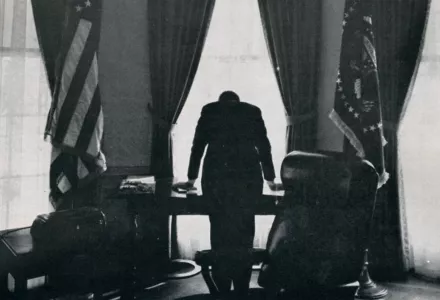War and Responsibility: Executive Constraint Overlooked
Speaker: M. Patrick Hulme, Postdoctoral Fellow, International Security Program
In the context of the war powers, it is widely believed that the United States has a little constrained "imperial presidency". Congress avoids going "on the record" on matters of war and peace, and American presidents de facto have virtually unlimited discretion over use of military force decisions. Overlooked, however, is that with great power comes great responsibility. American combat deaths in less-than-successful military ventures expose presidents to political costs more easily levied on an executive that acts absent sufficient political cover from lawmakers. Taking account of these Loss Responsibility Costs, this seminar shows that the United States actually has an executive substantially constrained by Congress.
Open to Harvard ID Holders Only: Admittance will be on a first come–first served basis. Coffee & Tea Provided.




